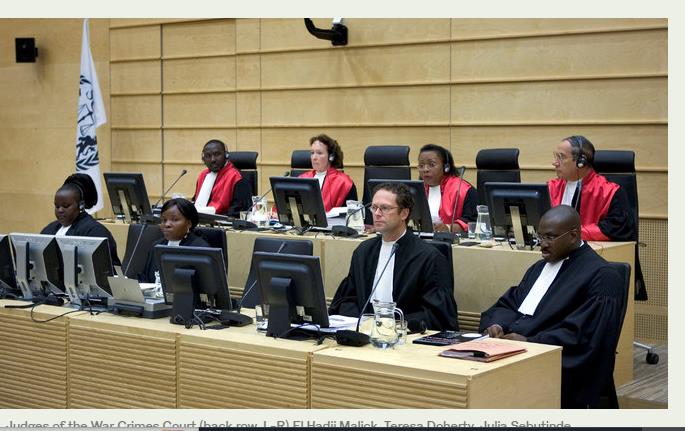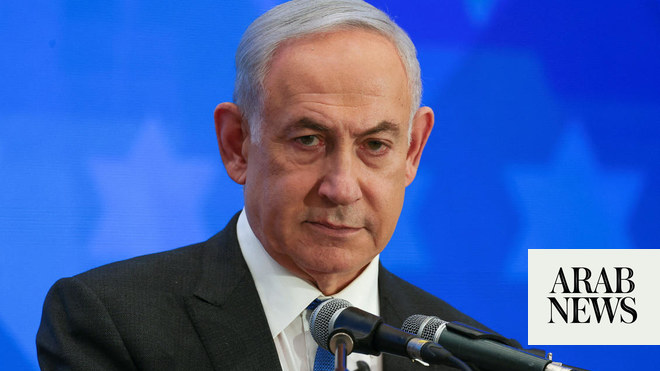
There are three terms that instantly get under Israeli officials’ skin and make them even more defensive than usual: Apartheid, Boycott, Divestment and Sanctions (BDS), and war crimes. If any one of these notions is mentioned, officials will accuse the international community of being inherently prejudiced against Israel and — usually as the last line of defense — claim there are worse violators of human rights than Israel. Few would argue that abuses of human rights do not occur in many parts of the world, both way too frequently and with unacceptable cruelty. But this is hardly a justification for Israel’s behavior vis-a-vis the Palestinians in “normal” times of occupation and blockade, let alone when hostilities break out between the two sides and the situation further deteriorates.
A report by Human Rights Watch (HRW) last week unequivocally accused both Israel and the militant Palestinian movement Hamas of violating the laws of war in what “apparently amount to war crimes” during the May conflict. The investigation focused on three Israeli airstrikes on the Gaza Strip that killed 62 Palestinian civilians, including 32 children, where there was no evidence of military targets close by. HRW is also clear that Hamas’ launch of more than 4,000 guided rockets and mortars into Israel — though not the focus of this international organization’s specific investigation — unlawfully and indiscriminately targeted civilians. HRW is committed to releasing further findings on this at a later date.
This report comes just a few months after the International Criminal Court’s (ICC) then-Chief Prosecutor Fatou Bensouda confirmed her decision to open a full investigation into the situation in the Occupied Territories, including Gaza. Bensouda, who completed her tenure as chief prosecutor in June, rightly pointed out that, whatever the security concerns or political considerations of the belligerents, the ICC’s central concern must be for the victims of potential war crimes, both Palestinian and Israeli.
As the weeks and months passed following the end of the May bloodshed between Israel and Hamas, international interest quickly waned and the violence and deaths were confined to being just the latest chapter in the tragic history of this conflict. But for those many civilians who lost their loved ones or suffered life-changing injuries, the excruciating pain will remain for as long as they live — and they rightly demand and deserve justice.
HRW’s meticulously researched report, like many other reports on cases worldwide I have come across, describes how, in the space of 11 days in May, 260 Palestinians were killed, including at least 129 civilians, among them 66 children. On the Israeli side, 13 people, including two children, lost their lives. It is an important reminder of the deadly consequences of a decades-long, unresolved conflict with no accountability.
Hamas is targeting civilians and does not even bother to hide the fact that this is its main purpose. In doing so, it almost walks itself into a courtroom in The Hague. Meanwhile, the security arguments that Israel hides behind and the blame it heaps on Hamas for using civilians as human shields no longer hold water, if they ever did. In one of the cases investigated by HRW, an Israeli attack leveled three buildings in Al-Wahda Street in Gaza City, killing 44 civilians. As in other cases, Israeli officials contended that they were targeting tunnels and an underground command center used by armed groups; but the report tells us that no evidence was provided to back up this claim.
But even if there were military targets close to those buildings, surely no legal — let alone moral — argument could justify such a massive loss of civilian lives. An army that has fashioned itself as the most moral in the world, bringing up generations of soldiers on the euphemistic and false notion of “purity of arms,” should have used its judgment, common sense and, most importantly, humanity to hold fire, regardless of how valuable any military target was considered to be.
Even if we grant that civilians were not deliberately targeted, Israel’s defense of its actions implies that civilians are presumed to be mere items of collateral damage in this conflict. So let us once more state what must be repeated constantly until it gains some traction: Not one civilian should ever be anyone’s collateral damage. They are, first and foremost, human beings; non-combatants caught up in the misery of a conflict that is no fault of their own and is the direct result of an unholy mixture of their leaders’ incompetence and belligerence and the international community’s appalling negligence.
International humanitarian law is unequivocal in its distinction between civilians and combatants, and states that: “The parties to the conflict must at all times distinguish between civilians and combatants. Attacks may only be directed against combatants. Attacks must not be directed against civilians.” It makes clear that such actions must be considered as war crimes and crimes against humanity.
Gaza is a tiny enclave that has been blockaded by Israel since 2007, which in itself constitutes unlawful collective punishment. It has been ruled by a political movement that has a litany of human rights abuses to its name. When Israel piles on the misery against the Gazan people, it acts immorally and unlawfully, and, in the long term, it is self-defeating. Most Gazans did not decide to live there, but are refugees and, along with those who are originally from that narrow strip of land or who moved there by choice, are being held hostage in the world’s biggest open-air prison. They don’t have the luxury of leaving when hostilities break out, as they do with alarming frequency and with devastating results. As the 2018-19 “Great March of Return” proved, coming close to the border with Israel can have fatal consequences; anyone who does so also risks being maimed for life by Israeli snipers targeting their kneecaps.
Nobody wants to see people brought before judges and indicted for war crimes or crimes against humanity. But the obvious must be stated: The ICC reflects our flaws as human beings — it serves mainly to deter people from committing gross abuses of human rights and to ensure there is no impunity for perpetrators when such abuses do take place. Many in Israel, especially politicians and the security establishment, might be publicly dismissive or angry about this damning HRW report and seek to deny or belittle its findings, but they would be doing themselves and their country a huge favor if instead they were to embark on some genuine soul-searching. They should reflect on how the occupation and the deliberate obstruction of any moves toward peace have brought Israeli officials to the point of being suspected war criminals and human rights abusers.
Yossi Mekelberg is professor of international relations and an associate fellow of the MENA Program at Chatham House. He is a regular contributor to the international written and electronic media. Twitter: @YMekelberg
Disclaimer: Views expressed by writers in this section are their own and do not necessarily reflect Arab News" point-of-view












